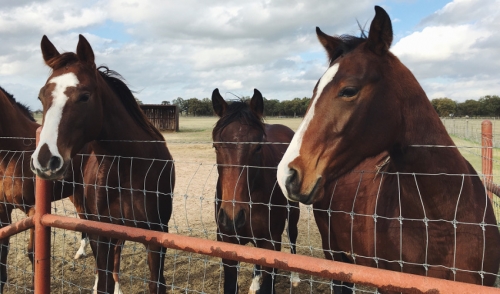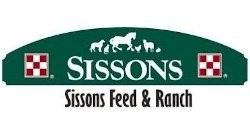
The Best Kind of Fencing for Your Horse
Horses have a wide range of breeds, sizes, personalities and temperaments, and there is no single type of fence that is best for every type of horse. Understanding the different fences is essential for choosing the right fence to keep your horse safe and secure, whether it is in a grazing corral, training area, show area or other facility.
Types of Fences for Horses
There are several popular types of fences that can be used for horses. Consider each type carefully and note whether it is suitable to your horses, property type and overall needs before committing to one type of fence.
- Electric Fences
An electrified fence delivers a mild shock to a horse when it leans on the fence or runs into the barrier, which can help train the animal to avoid the fence. These fences are usually constructed of coated wire and may be able to be adjusted to different current levels, but they are one of the most expensive fence types and may be less visible to horses, which could increase the risk of impacts and tangling.
- Wire Fences
Simple, strung wire fences without electrical current are very easy to install and one of the least expensive fences, but they have a high risk of horses getting tangled in the wires, which could lead to dangerous injuries. These fences are not as visible as other types of barriers, and may need regular tightening as they are loosened by impacts and other disruptions.
- Mesh Fences
Wire mesh is a much more durable fence than simple strung wire constructions, and if the wire is spaced adequately – no greater than 2-4 inches between wires – there is little risk of the horse getting stuck or tangled. Diamond-shaped mesh is best, but rectangular mesh is also effective. These are durable fences, and the mesh is more visible to horses than individual wires.
- Pipe Fences
Simple pipe fences are sturdy and relatively visible, and while they require less maintenance, they are also less flexible and cannot easily be adjusted if the fence needs to be reconfigured. These fences can be dangerous for very unruly horses, however, because the pipe will not flex at all with impacts and a horse could be more easily injured.
- Wood Rail Fences
These rustic fences are one of the most popular choices because they are highly visible, easy to install and initially may be less expensive, but they do require more maintenance as the wood warps or is damaged by active horses. That maintenance cost can add up significantly, and the overall lifespan of a wood rail fence is shorter than other designs.
- Vinyl Rail Fences
Vinyl rails mimic the country look of wood rails, but are very low maintenance and have a much longer lifespan. They are also more expensive, however, and can be more difficult to repair if they are broken. These are highly visible fences that are suitable for a wide range of uses and can work for many horses.
Putting in a Fence
No matter which type of fence you decide is best for your horse, it is important to be sure the fence is securely installed and adequately maintained.
- Consider professional installation, and be sure the installer is familiar with the needs of horse fences and is prepared to take extra steps to ensure durability.
- Enclose an adequate area for your horse's needs, taking into account the possibility of multiple horses sharing the same paddock or corral and planning accordingly for future growth.
- If you are designing a new enclosure, consider all the necessary features, including feeding, watering, gate access and mowing, and position the fence appropriately.
- Be sure the fence is high enough to safely contain your horse. Depending on the horse's activity level and jumping ability, fences 48-60 inches tall are generally preferred.
- Keep spare parts and necessary tools on hand to make minor repairs whenever necessary, and inspect the fence regularly to be sure it is safely maintained.
A fence is essential to keep your horse safe and secure, and while there are several types of fencing to choose from, horse owners who know more about each type can easily choose the best fence to meet their horse's needs.
